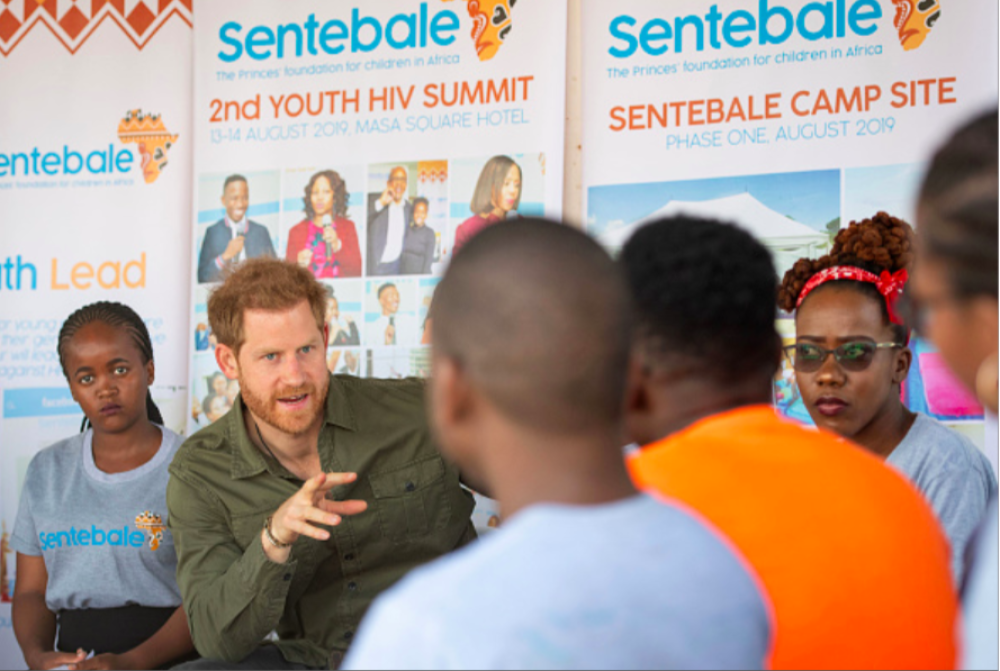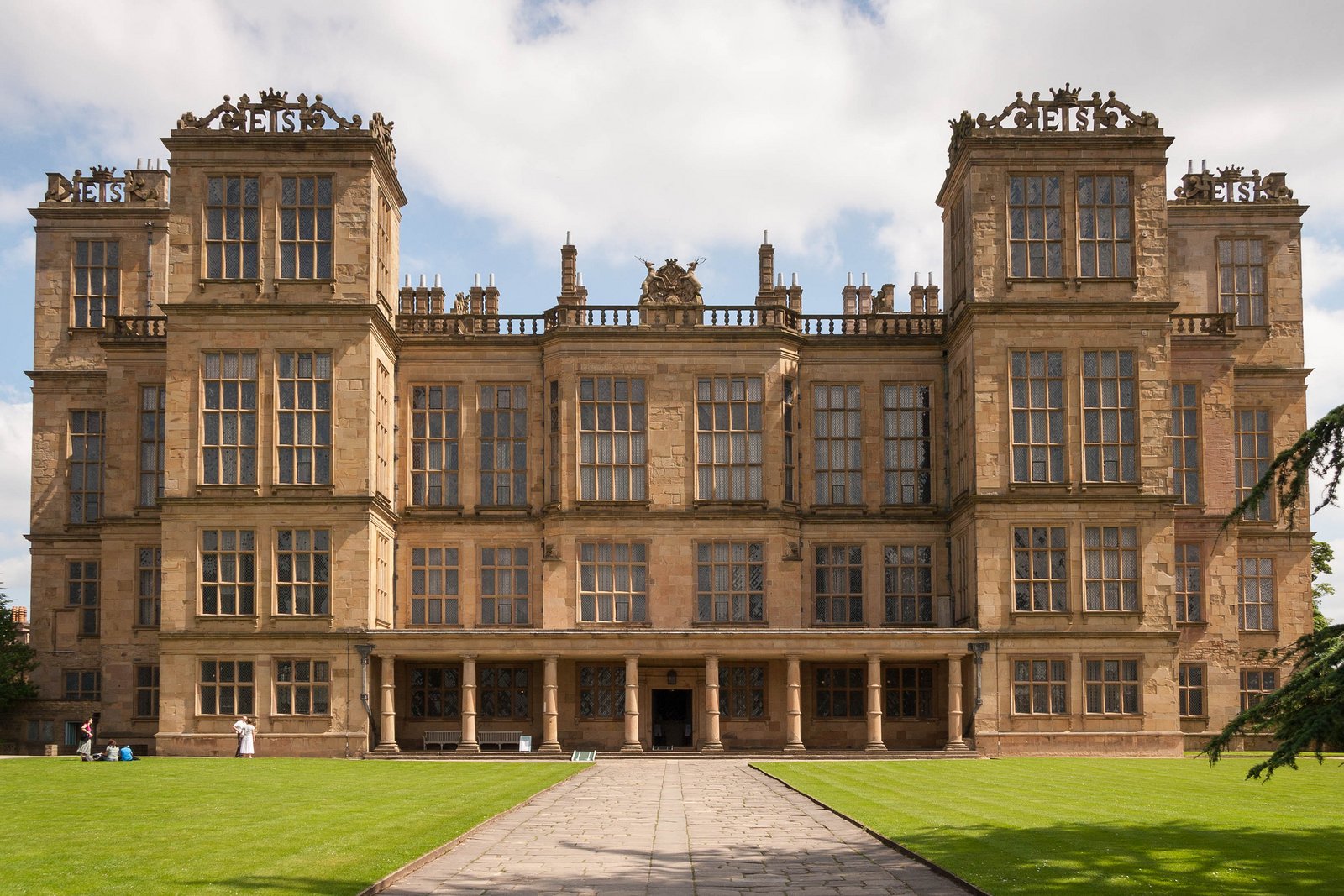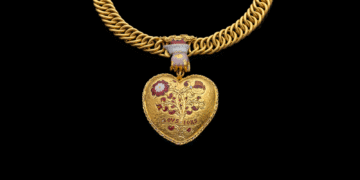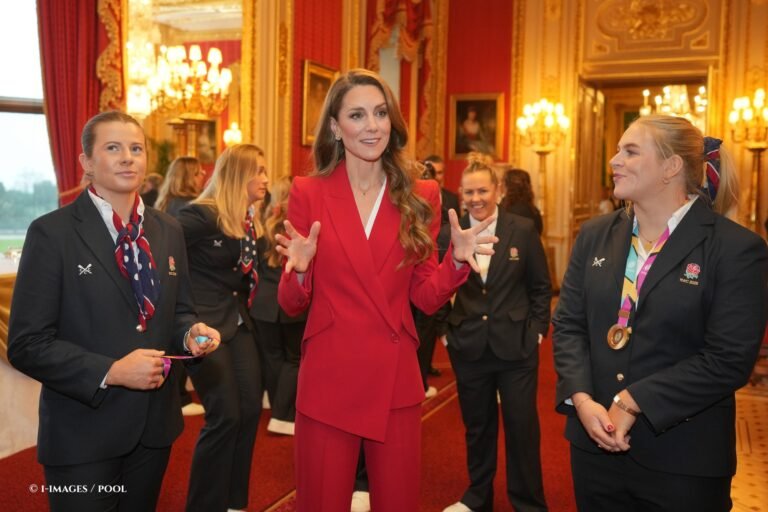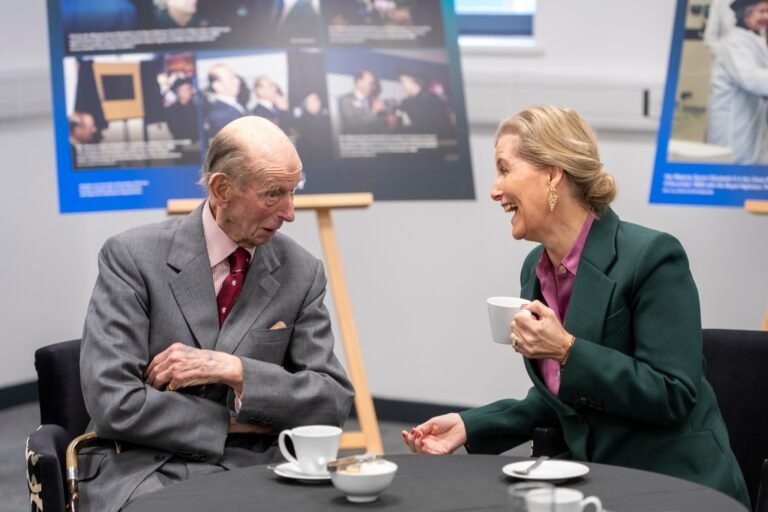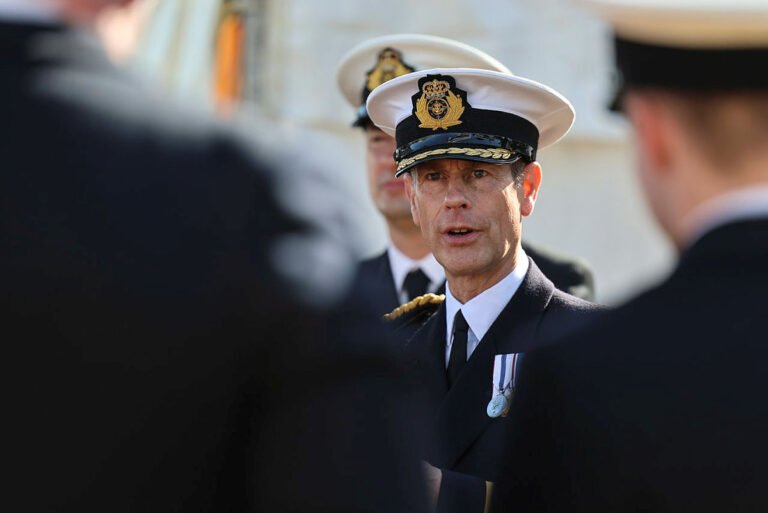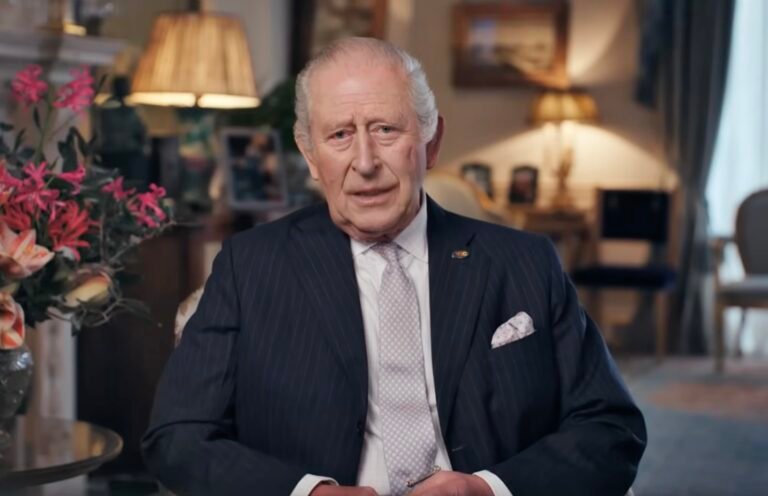The Duke of Sussex arrived in Botswana Wednesday evening to begin the solo portion of the royal visit to Southern Africa. Prince Harry, having left the Duchess and son Archie in South Africa, will spend the next few days in Angola and Malawi visiting various organisations and causes close to his heart.
Embed from Getty ImagesEmbed from Getty Images
On Thursday the Duke began his day at the Chobe Forest Tree Reserve where he planted trees with 200 local schoolchildren. And these were not just any trees – the children grew the trees from seeds. Not only do the trees represent months of careful tending by the children, they were also sustainably grown using recycled milk containers from the elephant orphanage and fertilised with elephant dung, provided by the park’s own elephant population.
The biggest tree – an endangered baobab native to the region – was reserved for the Duke. The trees will help rehabilitate the area and thus support the region’s fragile ecosystems. Harry helped heave it to a vertical position, fill the hole with soil and water it.
Embed from Getty Images
Embed from Getty Images
Dr Mike Chase, founder of Elephant Without Borders (EWB), met the Duke upon his arrival. Dr Chase and Prince Harry have been friends for over 15 years, and the Duke was clearly excited to be back among friends doing what he loves: raising awareness about animal protection and conservation.
“This infectious optimism that the Duke of Sussex has is now spread across the entire Chobe district”, Dr Chase said to the media.
Climate change was at the forefront of both men’s minds and the Royal did not hesitate to speak his mind. “I don’t think there’s anyone that’s not involved in conservation somehow or shouldn’t be involved in conservation somehow,” Harry said. “This last week, led by Greta Thunberg, the world’s children are striking. It’s a race against time and one which we are losing – everyone knows it, there’s no excuse for not knowing that.
“And I think the most troubling part of it is that I don’t believe there is anybody in this world that can deny science, undeniable science and facts.
“Science and facts that have been around for the last 30, maybe 40, years and it’s only getting stronger and stronger.
“I genuinely don’t understand how anyone in this world, whoever we are – you, us, children, leaders, whoever it is – no one can deny science otherwise we live in a very, very troubling world.”
The Duke then traveled to Kasane, a town northeastern corner of Botswana, near the borders with Namibia, Zambia and Zimbabwe. He visited the Kasane Health Post, a project run by Sentebale, the organisation Prince Harry co-founded with Prince Seesio of Lesotho, to provide hope and other services to children and young people affected by HIV/AIDS.
The Duke of Sussex visited a @Sentebale project supporting young people affected by HIV in Botswana.
His Royal Highness and Prince Seeiso of Lesotho founded Sentebale in 2006 to provide support & education to children & people whose lives are affected by HIV. #RoyalVisitBotswana pic.twitter.com/vtUCmlbyQz— The Royal Family (@RoyalFamily) September 26, 2019
Kasane is notable for a number of reasons. Unfortunately one of them is a number: 22.3%. This represents the number of persons between 15-49 infected with HIV/AIDS.
Sentebale works with the Health Post to reduce the stigma and shame associated with the virus and to show that long, happy, and healthy lives are possible in spite of a positive diagnosis. And while the organisation’s mission is serious a keen sense of humour greeted the Duke upon his arrival – a sign saying “Welcome Archie’s Father.”
While at the Health Post, Harry attended a youth summit and talked with clients, some of whom are waiting for anti-viral medication, some of whom have lived with HIV for most of their young lives, and some of whom serve as mentors and ambassadors for Sentebale, spreading hope and positivity among the community.
The Prince’s last engagement of the day was a trip to Chobe National Forest, where he joined local officials engaged in anti-poaching activities. Prince Harry joined members of the Botswana Defence Force Patrol (BDFP) on land and on water. The BDSF aims to make the area a safe haven for the many endangered species native to the Chobe River region.
The Botswana Defence Force (BDF) work to fight against poaching and human/wildlife conflict in Botswana. The Chobe River is situated on the border between Botswana and Namibia, with borders with Zambia and Zimbabwe nearby. pic.twitter.com/vQLWVJbZJY
— The Royal Family (@RoyalFamily) September 26, 2019
He also dedicated a portion of the forest to The Queen’s Canopy, a project that seeks to protect and expand the forests of the Commonwealth, to mark The Queen’s Diamond Jubilee and her legacy.
Botswana clearly holds a special place in the Duke’s heart and he has made no secret of the “deep connection” he feels to this place. He came here to recover from the devastating loss of his mother, saying: “15 years I’ve been coming here, it’s a sense of escapism, a real sense of purpose… I have some of my closest friends here over the years.
“I came here in 1997 or 1998 straight after my mum died, so it was a nice place to get away from it all. I feel deeply connected to this place and to Africa.”
"15 years I've been coming here, it's a sense of escapism, a real sense of purpose."
Prince Harry talks about how coming to Botswana helped him after the death of his mother, and how denying climate change is unjustifiable.
Read more on this story here: https://t.co/iM4s2e2jaF pic.twitter.com/Xehwedng7X
— Sky News (@SkyNews) September 26, 2019
A few days ago, Meghan made reference to her black heritage, calling herself ‘a sister’ in Cape Town.
The redheaded Royal also came here with his future wife, Meghan, on holiday, and he procured the ethically-mined main stone in the Duchess’s engagement ring from here. Botswana seems to be his home just as much London or Windsor, and with this visit, Harry appears more committed than ever to its people and its future.

